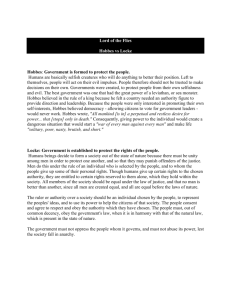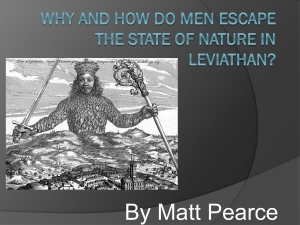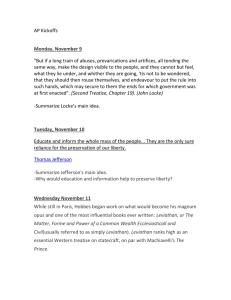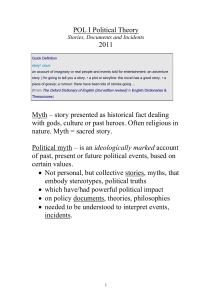Reading Questions 04–Hobbes Leviathan
advertisement
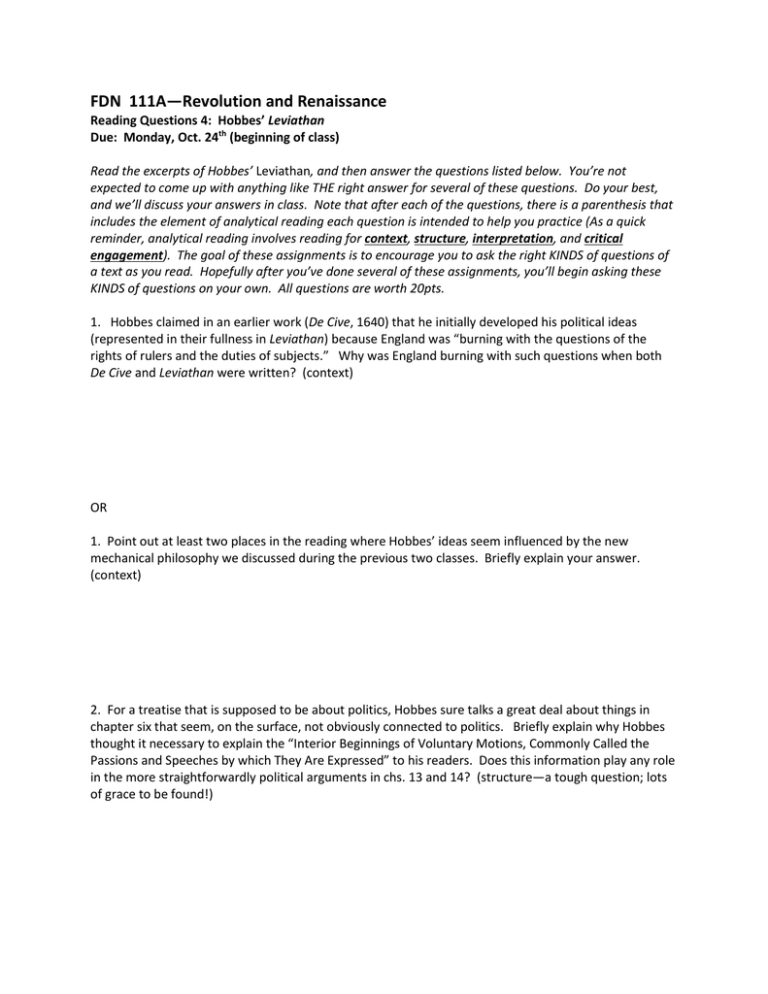
FDN 111A—Revolution and Renaissance Reading Questions 4: Hobbes’ Leviathan Due: Monday, Oct. 24th (beginning of class) Read the excerpts of Hobbes’ Leviathan, and then answer the questions listed below. You’re not expected to come up with anything like THE right answer for several of these questions. Do your best, and we’ll discuss your answers in class. Note that after each of the questions, there is a parenthesis that includes the element of analytical reading each question is intended to help you practice (As a quick reminder, analytical reading involves reading for context, structure, interpretation, and critical engagement). The goal of these assignments is to encourage you to ask the right KINDS of questions of a text as you read. Hopefully after you’ve done several of these assignments, you’ll begin asking these KINDS of questions on your own. All questions are worth 20pts. 1. Hobbes claimed in an earlier work (De Cive, 1640) that he initially developed his political ideas (represented in their fullness in Leviathan) because England was “burning with the questions of the rights of rulers and the duties of subjects.” Why was England burning with such questions when both De Cive and Leviathan were written? (context) OR 1. Point out at least two places in the reading where Hobbes’ ideas seem influenced by the new mechanical philosophy we discussed during the previous two classes. Briefly explain your answer. (context) 2. For a treatise that is supposed to be about politics, Hobbes sure talks a great deal about things in chapter six that seem, on the surface, not obviously connected to politics. Briefly explain why Hobbes thought it necessary to explain the “Interior Beginnings of Voluntary Motions, Commonly Called the Passions and Speeches by which They Are Expressed” to his readers. Does this information play any role in the more straightforwardly political arguments in chs. 13 and 14? (structure—a tough question; lots of grace to be found!) 3. Hobbes is often accused of depicting humans as wolf-like (selfish, brutal, antagonistic, etc.) in their social relationships. In chapter 11, paragraph (2), Hobbes puts “as a general inclination of all mankind, a perpetual and restless desire of power after power that ceaseth only in death” (240). Based on the best evidence you have from the whole of our excerpt, offer two possible interpretations of this claim—one which seems to validate the “human are like wolves” reading of Hobbes and one which does not validate this reading. (interpret) 4. Consider the following objection someone might raise to Hobbes’ argument in chapter 13. “Hobbes’ claim that ‘men have no pleasure, but on the contrary, a great deal of grief in keeping company…’ is clearly false. Friends, family members, workmates, etc., frequently get pleasure from being together. Hobbes has overreached in his overly negative characterization of human nature.” Is this a good objection? Briefly explain your answer. (critical engagement) 5. TBD
